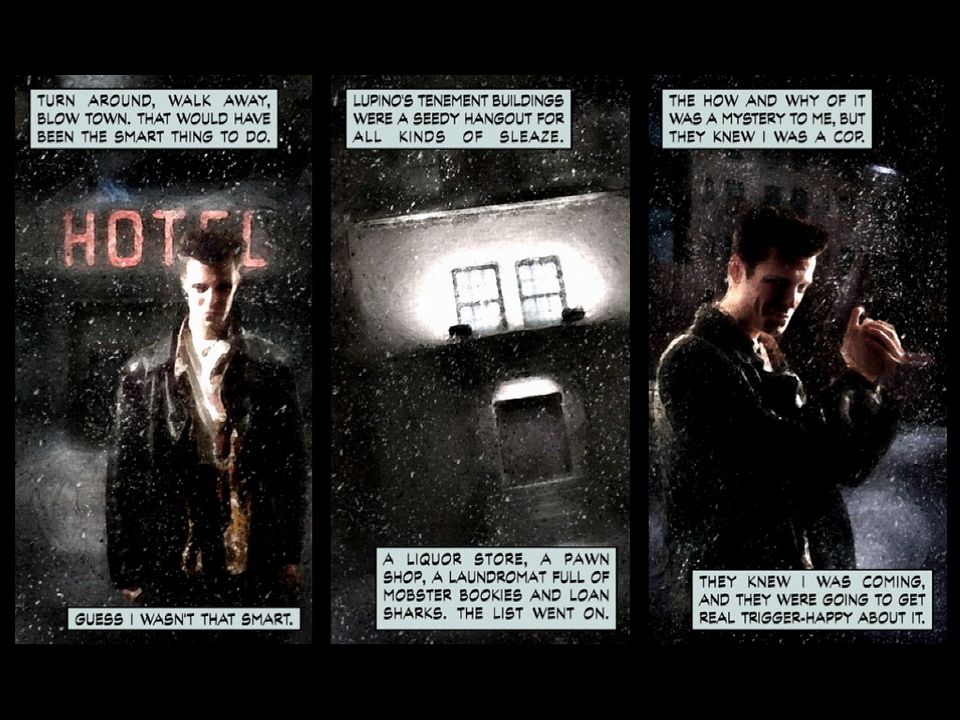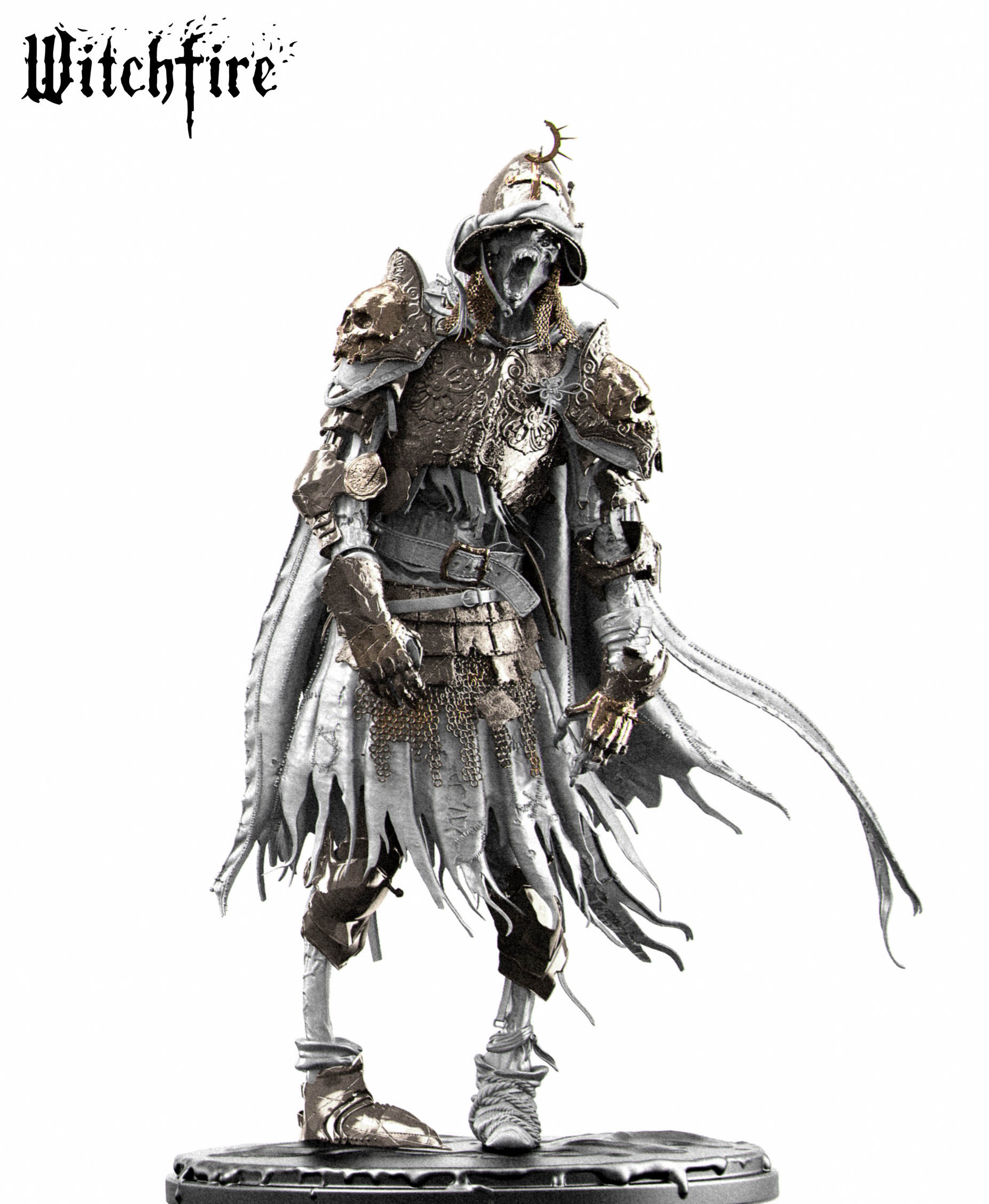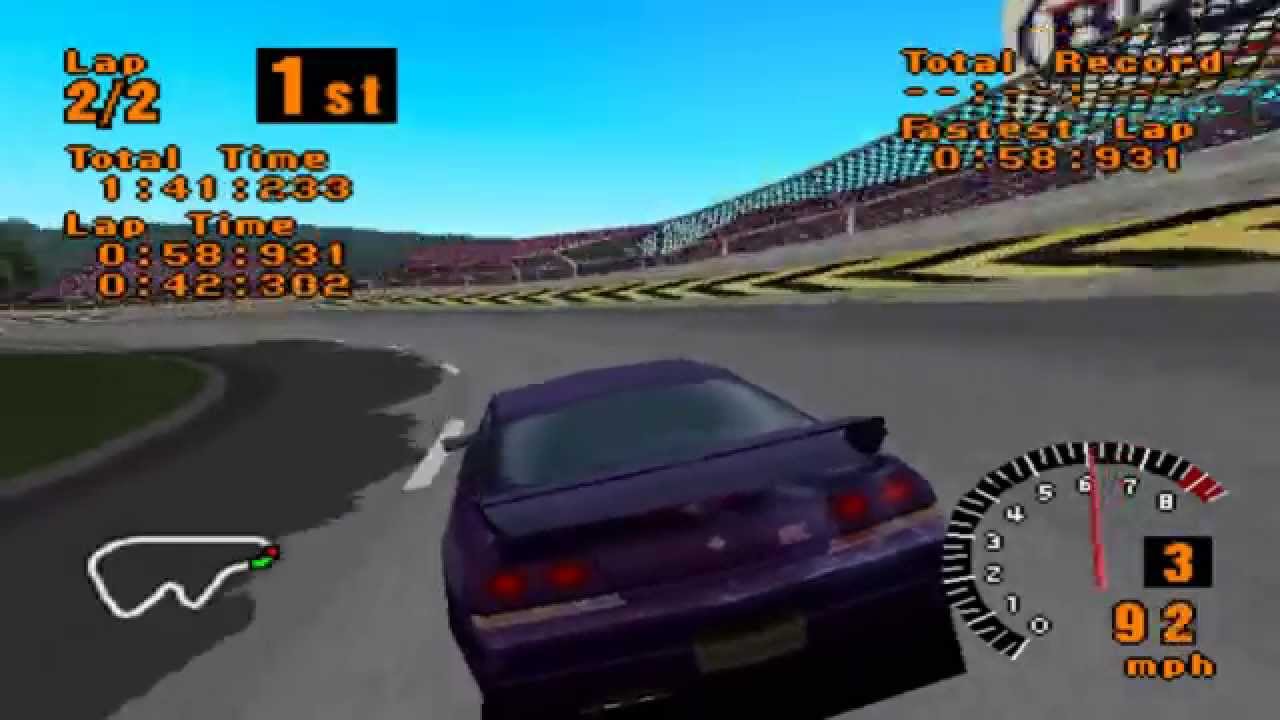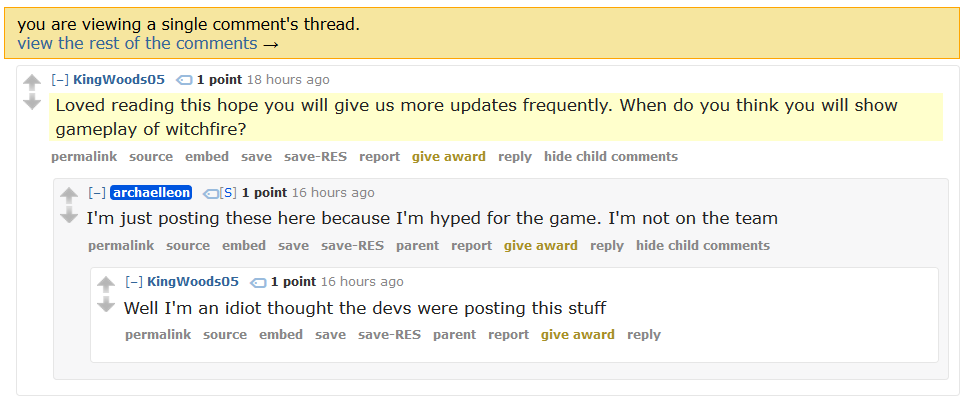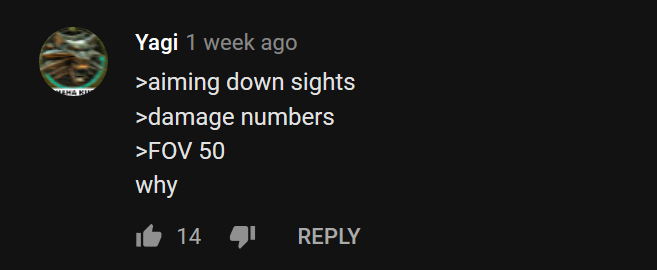The Basic Philosophy Behind Witchfire's Combat, Part II
By
Adrian Chmielarz Posted in
Witchfire on 2019/02/06
Literally half of the team is sick, so no real Witchfire material this week. At least nothing visual, as what I want to talk about does concern the game.
Posted under one of our Facebook updates, specifically
the one about the way we approach combat in Witchfire, a certain comment caught my eye.
To me, this combat style sound like it may become stale or predictable. For me, part of the fun of being in a gunfight in a game is the unpredictability. When you’re not always sure where you are going to be shot from, it forces you to get faster at reacting and learning to counter. If you can make it through a game unscathed then the challenge is not hard enough or the action is too slow and predictable. This leads to the problem of memorizing encounters and destroys replayability.
I find this comment legit and interesting, and it’s a good excuse to dive deeper into our design philosophy. But first, let me counter the comment’s assumptions in two ways, with practice and with theory.
The best practical example I can offer is Dead Cells. A very successful game. Replayability is its core value, and one can neither say the challenge
“is not hard enough” (it’s a roguelike, after all) nor that
“the action is too slow and predictable” (it’s full of mad action, and your manual skills matter a lot). And yet, no damage runs are absolutely possible.
Now for a bit of theory. Since I always operate on examples, let’s say we analyze what sniping someone in a PVP game means.
A good game, to me, is about
action and reaction. The reaction part is easy. I see an enemy, I point my sniper rifle at their head and fire. To be good even at this simple little thing, dozens if not hundreds of hours are required for the muscle memory to work properly. Still, it’s all about reacting.
What about the action part, then? Well,
action means the ability to plan.
Planning requires at least certain levels of
predictability. You can’t really plan for chaos, you can just hope for the best.
And indeed, even in PVP games, that predictability exists. That’s literally what heat maps prove. So, for example, if you know that most of the time, enemies prefer to get from A to C through the B corridor, you can hardscope that lane and take them off before they have the time to react.
But that’s not predictability at 100%, is it? If the enemy is any good, they will either use an alternate, less popular route, or they will slide through the corridor, making it harder for you to snipe them.
Funny thing is, though, that this is also predictable in a way. After all, that’s how most multiplayer maps, especially in arena shooters, are designed – for predictability. So you hardscope B ready to shoot lower if they slide in, and you check the alternate route every now and then to see if they maybe decided to use it.
What I am trying to show here is that predictability is actually inherent to gaming, even when playing against human opponents, let alone AI.
In my opinion, even if a challenge is 100% predictable, that can still provide for a super fun game. When we were making Painkiller, late nights we played a lot of Grand Turismo in the basement. Four guys, one track, one car, no “enemy” cars. Just trying to see who’s going to have the best lap time. We had tons of fun, and being limited to one track only did not destroy the replayability at all. We played on that single track for over a month!
The point is: predictability is not the enemy of gameplay, especially if the game is both about action and reaction. On the contrary, predictability, at least certain levels of it, is absolutely necessary for the experience to feel right. A good example is the second part of the comment:
To keep the fights fast paced and unpredictable with this mindset it sounds as though the character would need a fast and powerful regen ability that is not automatically but manually triggered by the player. No damage runs and high action-high-skill first person shooters have no business together as far as I’m concerned. What makes fps games fun is adrenaline packed high speed high action quick reaction gun and super skill fights where you can’t always see and predict what’s coming. If this were a strict gun based war style game maybe this would work but you have supers and magic.
Fights should have the feel of being jumped in a barfight. You’re not going to react to the dude who snuck up from behind you until you feel him hit you. From that instance the way you react and counter would determine the outcome of the fight. Point being if it’s unpredictable you’re going to get hit. If it’s predictable it’s going to get stale.
The bar fights example is great. But the thing is, once you learn that enemies can sneak up from behind, doesn’t that feature become …predictable? Wouldn’t you start to often look behind you, or wouldn’t you start positioning yourself with your back to the wall?
And we can keep introducing these surprises – people who rush at you with a broken bottle, or people who you think were knocked down, but suddenly stand up and attack when you’re not looking – but sooner or later you will know and understand all elements of a bar fight, and you will use that knowledge to try to win. It’ll “only” be the question of your manual skills and
game sense.
So, predictability exists in games whether we want it or not …but it is not a word I would use to describe our approach to combat. Well, at least not in the meaning of whether encounters can be memorized or not – that’s a whole separate subject.
The word that explains our approach better is
fairness. Internally, we call it “fair damage” or “avoidable damage”.
Sticking to the bar fight example…
Imagine we spawn a silent enemy out of thin air, who then attacks the player from behind. Absolutely no way to predict that, it’s always random and you can’t know it’s about to happen until you’re attacked. How is that fun? To me, that just sounds annoying.
Okay, so let’s spawn this enemy silently somewhere out of the player’s view (so it looks like he came from the street or whatever), and then have him silently approach and attack the player from behind. That’s better, right? Sometimes you will get attacked, and sometimes you will randomly turn around and spot him at the last second and panic-punch him in the face.
The problem is, “silent” is unfair. A gaming monitor’s screen is far from emulating real life. Your vision is restricted and not unlike walking around with a welding helmet on your head. You see much less than you should and there’s basically no true peripheral vision.
Or this: I’m sure we all experienced
this phenomenon of knowing that someone is looking at us without actually seeing that person or having any “real” reason to believe we’re being watched. Something like this is impossible to achieve in a video game, at least in 2019.
In other words, unless compensated by special cues, being silently attacked from behind would feel unfair. When the player rightfully blames the game, not themselves, to me that’s bad game design.
So if in Witchfire we wanted to have a bar fight with people sneaking up upon us, the enemy would have to, for example, be accompanied with the sound of his heavy boots on the creaky saloon floor, and the blip on the radar.
The players would still get hit.
A lot.
But at least when that happened, they would go
“Damn, I forgot to check the radar” or
“I got a tunnel vision and forgot to keep monitoring my surroundings” or
“I need better headphones” rather than
“How was that fair?”.
I’m not saying you should get the full health back but you should never be able to go unscathed through an entire game. If you can, either the game will lose replayability or it’s predictable.
To make it super clear: with all due respect, you will not get through the game unscathed. I will not get through the game unscathed, and I doubt anyone else on the team will. I’m not even sure there is a person alive who will. Hell, I don’t even know if the final structure of the game will allow for no damage runs at all.
The “unscathed” mantra is simply just another way of saying that
the way the combat goes, the player always needs to feel that when they were hit, it was because of the error they made, and not because the game is unfair. That’s all.
It’s not in the way of action and intensity, and it’s not in the way of being surprised on the battlefield.
Question of the Week
First, hey, this is cool, a Witchfire subreddit!
Second, hopefully we’ll be able to show some gameplay next month.







![The Year of Incline [2014] Codex 2014](/forums/smiles/campaign_tags/campaign_incline2014.png)

